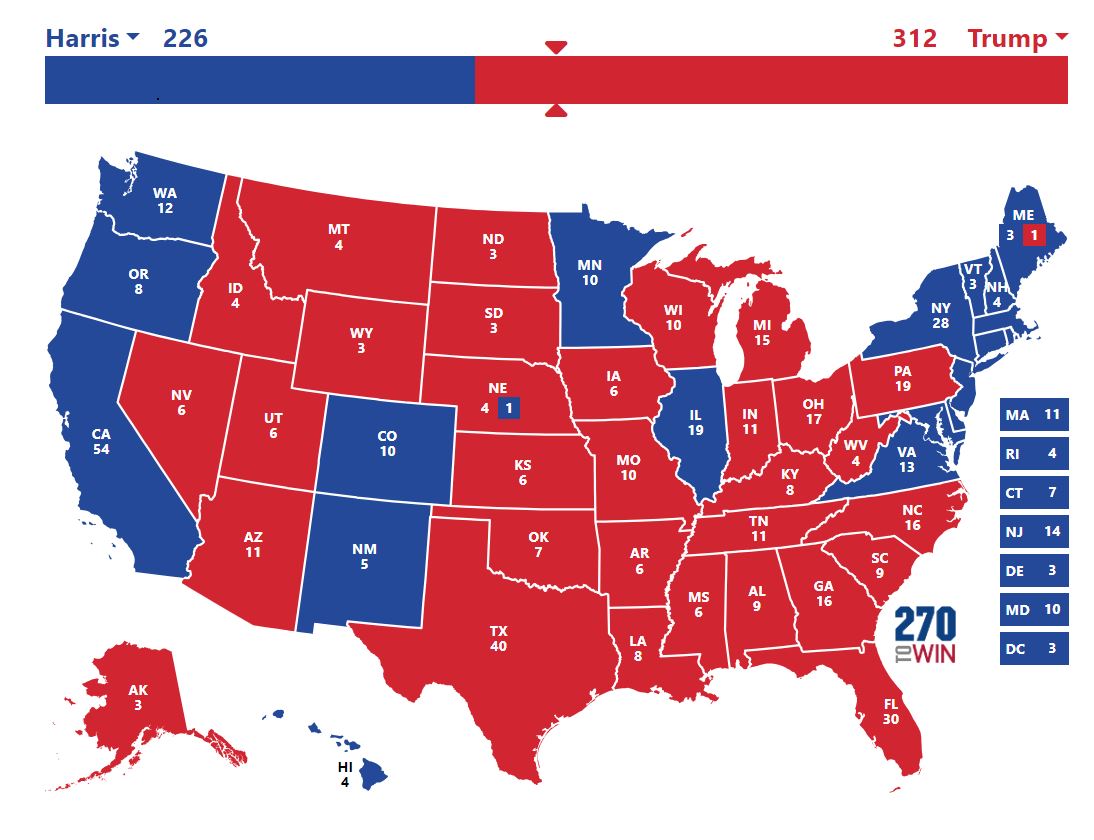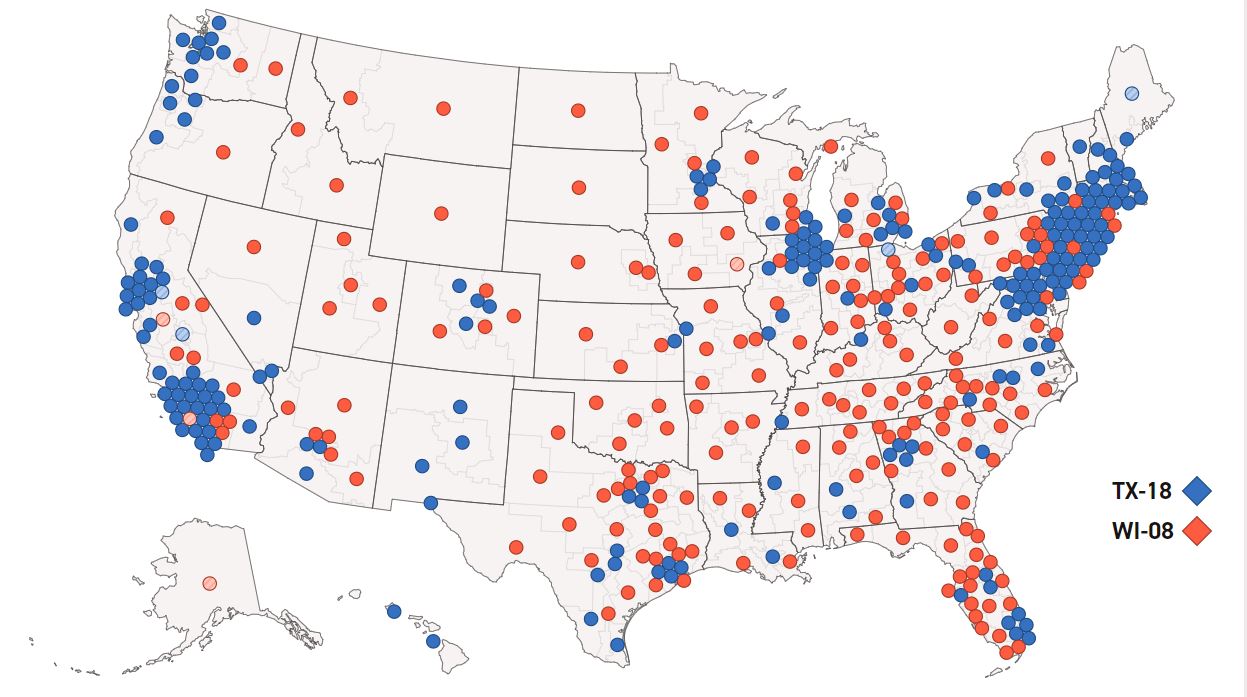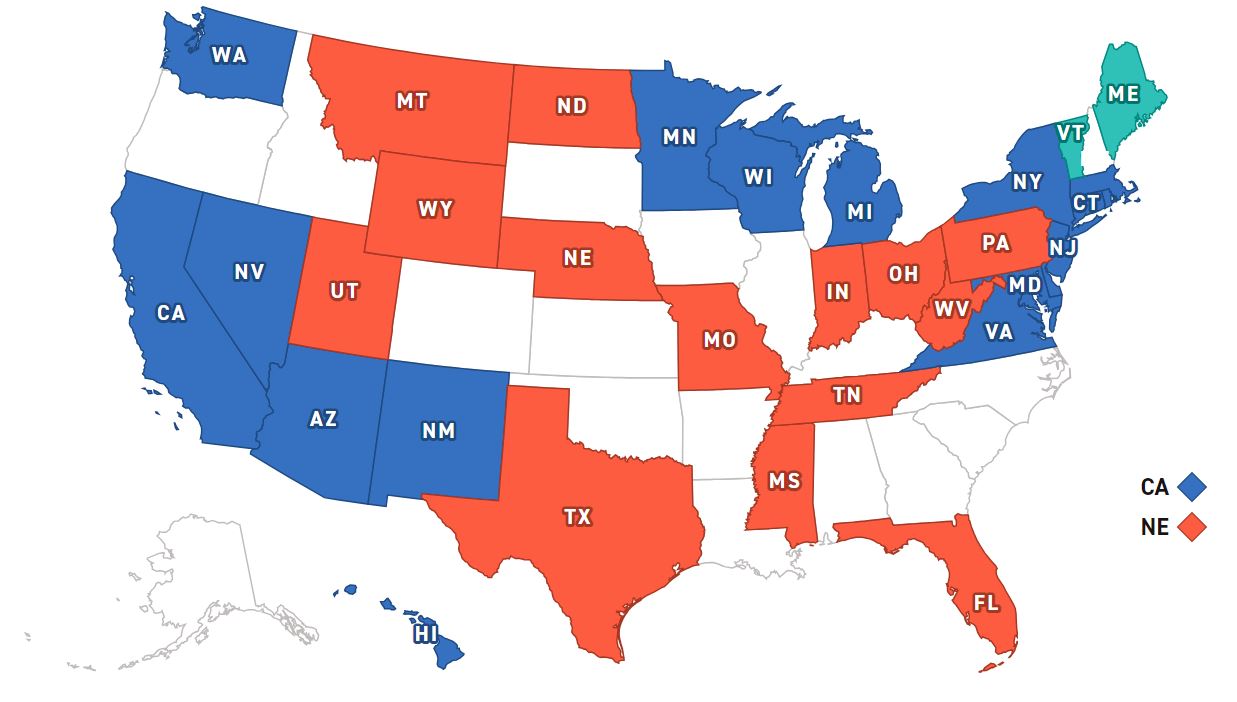2024 Election Guide
Presidential Elections Congressional Elections Gubernatorial Elections
2024 Presidential Election
In a stunning defeat, Former President Donald Trump (R) defeated Vice President Kamala Harris in all seven battle ground states and amassed 49.9% of the popular vote. This marks the first time a Republican presidential candidate has won the popular vote since 2004.
While polls leading up to election day predicted a close race, Trump once again outperformed polls by 1%-3% across battleground states, leading him to a much more comfortable victory than experts anticipated.

(Source: Politico)
Congressional Elections
House of Representatives
Republicans were able to maintain a slim margin in the House of Representatives - a margin that could be cut even further after special elections for members leaving the body to take up appointed positions within the Trump administration.

(Source: Politico)
Senate
Democrats will lose their Senate majority come January 3, as Republicans pick up an impressive haul of flips in the upper chamber. After swinging seats in Ohio, Montana, Nevada, and Pennsylvania, Republicans now hold a lead of 53-47 in the Senate.

(Source: Politico)
State Elections
Gubernatorial
Although several states will hold Gubernatorial elections, very few races are shaping up to be competitive. However, some, while not close, are still very consequential to the legislative outlook for the next 2-4 years.
- New Hampshire: Former Senator Kelly Ayotte (R) prevailed in the most competitive gubernatorial race in the country. Succeeding popular Republican Governor Chris Sununu (R), Ayotte will also be assisted by a strengthened Republican majority in the State House.
- North Carolina: Attorney General Josh Stein comfortably won North Carolina’s gubernatorial election, keeping the executive branch in the hands of Democrats. This maintains a crucial guardrail for Democrats, where veto power has been their most significant tool over the past eight years under current Governor Roy Cooper (D).
- Vermont: Vermont Republican Incumbent Governor Phil Scott (R) won an historic fifth term, making him only the second governor to do so in the state’s history. Despite being the most popular governor in the country, Scott has contended with supermajorities of the opposite party throughout much of his time in office. This time around, the moderate Republican was able to drive crucial inroads down ballot in one of the most liberal states in the country. The Lieutenant Governorship was carried by fellow Republican John Rodgers and enough State House seats were won by down ballot Republicans to eliminate the Democrat supermajority. This will greatly increase Scott’s negotiating power when the legislature convenes in January.
- Washington: Bob Ferguson (D) will succeed the retiring Jay Inslee (D) in the Democrat stronghold of Washington. While all races have not been called, Democrats were able to expand their majorities in both chambers following a redistricting that was expected to help them grow their ranks.
For further questions about ACD’s 2024 Election Guide please contact Tyler Farrar, Manager of Government Affairs at tfarrar@acd-chem.com.


